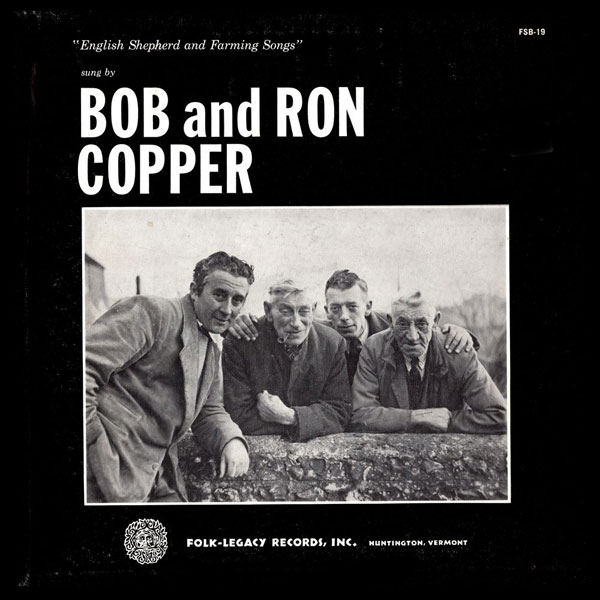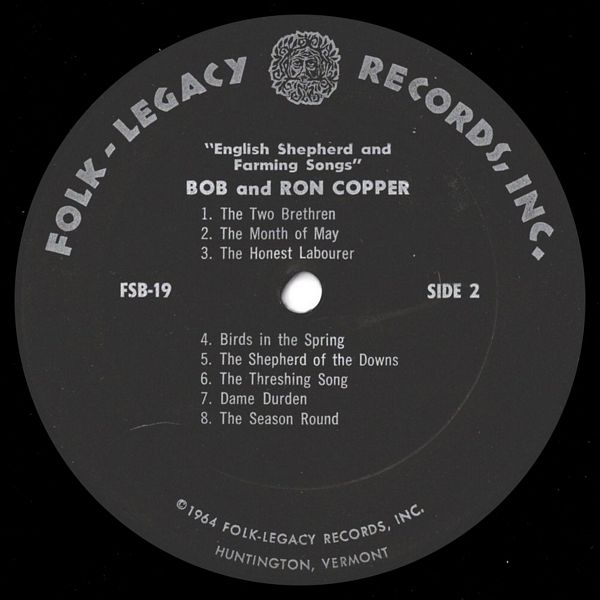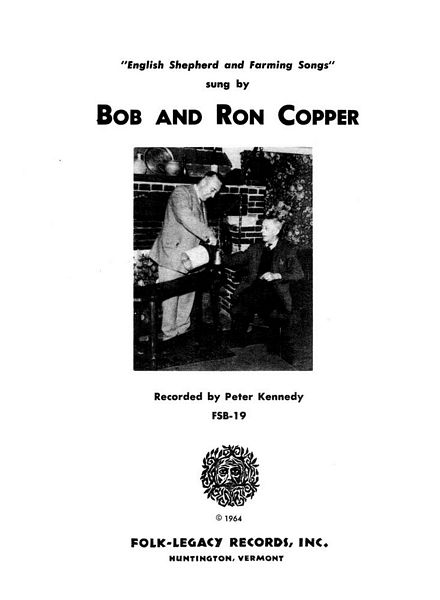
 |



 |
Sleeve Notes
The Copper family have lived for over three hundred years in and around the village of Rottingdean which, when we were lads, was still a tiny village tucked away quietly in a fold of the South Downs on the Sussex sea-board. Up until the early years of the present century our village was in the very heart of the Southdown sheep country. My father, Jim, and his brother, John, both started their working lives, as had their father before them, as shepherd boys on those wind-swept hills overlooking the English Channel. These old songs were, to them, symbolic of a way of life that was fast slipping away and seemed to inspire a certain sense of permanence in a rapidly changing world. They cannot be said to belong to Rottingdean any more than any folk song can be attributed to any particular area, but they are the versions as sung in the village.
These are the songs of the open Down where the Channel wind brings the tang of the sea to mingle with the scent of gorse. They belong to the shearing barn or the lambing fold built high with fuzz-bush against the early March winds. They know no accompaniment but the call of the seagull, the song of the lark, or the wavering cry of the newborn in search of its dam. Up to fifty years ago they were familiar in nearly every cottage but now, alas, there are scarcely any villagers who could sing one song right through. But in years gone by on Saturday nights in the tap-room of the Black Horse in the High Street or the Plough up by the pond, with the atmosphere heavy with shag tobacco smoke and a pot in each man's hand, the walls would fairly shake with sound as a well-known chorus was roared out for sometimes, it seemed, the hundredth time. It always struck me that the company, having found a tune, to their liking, were loathe to leave it and would repeat the chorus over and over again with undiminished enthusiasm until such time as "Order" was called for the next singer. In this manner the work-wearing hours of the week were forgotten and the cheery faces and shining eyes were proof enough that relaxation such as this was ample fortification against the week's work ahead. No paid entertainers were required in those days. Apart from the undeniable pleasure of having a good sing, it was a well established principle that you never paid anyone else to do a job you could do for yourself.
So a tradition coming down to us from the quiet mists of eighteenth century rural England (and maybe even before) lives on into the brash, noisy world of today. How much longer it will continue is, of course, impossible to say, but many years ago Ron and I made a vow that we would never be the weak links in the long chain of "singing Coppers."
From the introduction by Bob Copper